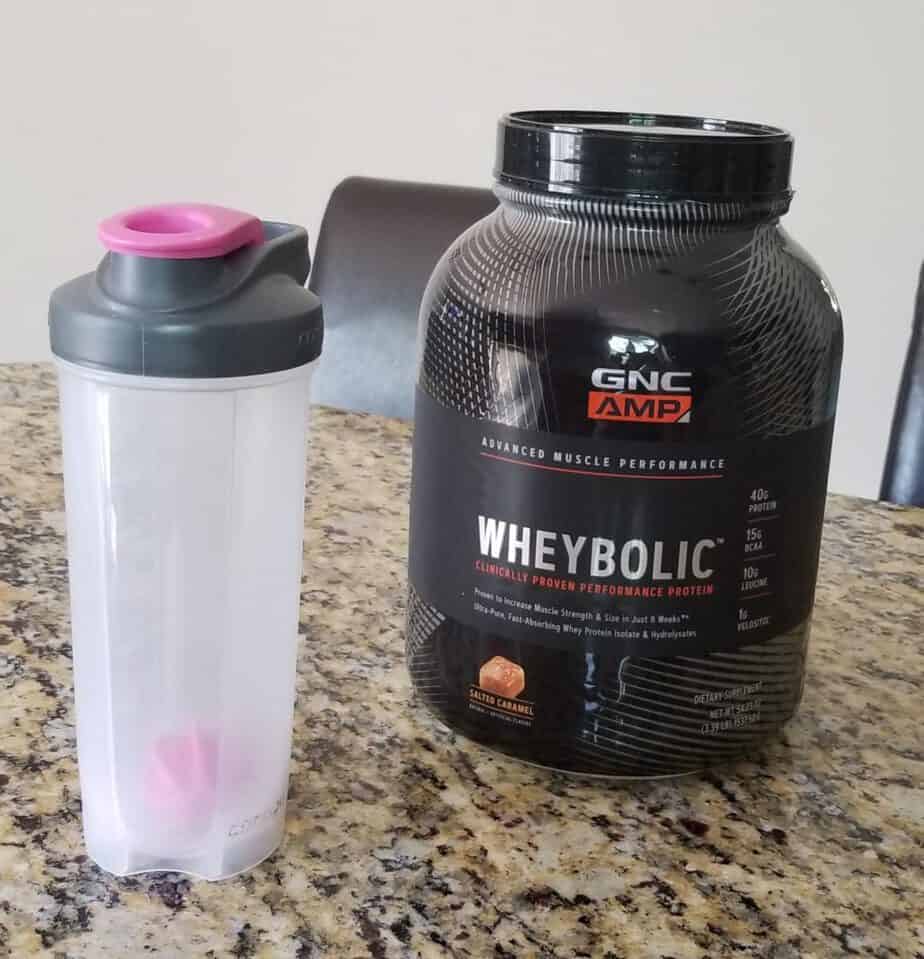Introduction
The ketogenic, or keto for short, diet is a low-carb, high-fat eating plan that’s said to promote weight loss and improve overall health, but does it actually work? And, can it work for people over 30?
The keto diet has been around since the 1920s when it was developed as a treatment for epilepsy. Today, this low-carb high-fat (LCHF) eating plan is used by people who want to lose weight and improve their health by cutting carbs from their diet.
The science behind the keto diet is still being studied at length; however, there are several studies showing its effectiveness in treating conditions such as type 2 diabetes mellitus (T2DM) and metabolic syndrome (MetS).
Benefits of the Keto Diet for Adults Over 30
Our bodies love carbohydrates. They are our primary energy source, but many of us overdo them. Too many carbs leads to weight gain because our bodies will convert them into fat to store and use later on. This diet works to help shed extra pounds pretty quickly. Your body needs to convert excess fat that is stored in the body into energy. This is to make up for the lack of carbs. If you are over 30 and looking to really shed some serious weight, you can most likely do it through keto IF you do it correctly.
While the keto diet is mainly used these days to help people lose weight and improve their health, it can also be used as a tool to manage certain health conditions. If you have type 2 diabetes, epilepsy or Alzheimer’s disease it might be something worth checking out regardless of age. Just check with your doctor before jumping into it.
Risks of the Keto Diet for Adults Over 30
While the diet has been shown to have many health benefits, it’s also associated with some risks for adults over 30.
To get into ketosis (the metabolic state where your body burns fat instead of carbohydrates for energy), you must eat fewer than 50 grams of carbs per day and get up to 80% of your calories from fat. This means that you need to avoid most grains and starchy vegetables like potatoes–and even some fruits! Sure, you can have lettuce and other leafy greens, but you can’t really enjoy carrots and broccoli.
In addition to cutting out these foods completely, you should limit your intake of dairy products that contain large amounts of lactose (a type of sugar). This means milk and yogurt but also includes softer cheeses. Now, I am a huge proponent of a balanced diet that includes fruits, veggies, and starches because of the micronutrient aspect of them. If you’re not careful about following keto guidelines, you may run into nutritional deficiencies that could negatively impact how well your body functions overall. No one wants that.
Another potential problem with this type of restrictive eating plan is that it can be difficult for people who don’t normally eat large amounts of meat or cheese every day. If someone tries to go full-on “keto” without making any changes first (like adding more ‘keto vegetables’ to the diet), there might be some nasty side effects. Not enough nutrients available during the first few weeks can not feel good. This is where nutritional deficiencies come into play. Not consuming enough micronutrients can cause weight loss plateaus.
There is also the ‘keto flu’ that comes along about a week into jumping into keto. This stems from the lack of carbohydrates your body is looking for and feels legitimately like a minor flu. While it can be avoided by upping your fat intake, drinking some electrolytes, and staying hydrated, it’s not fun for anyone, but when you are over 30 everything hurts more.
The Impact of the Keto Diet on Weight Loss
As you can imagine, the keto diet is a popular choice for people who want to lose weight. It’s been shown to help people lose about 5% of their body weight in one year. You could end up losing up to 10 pounds (4.5 kg) in six months. Big numbers. I can understand the allure.
The reason it works? The keto diet forces your body into a state called ketosis. Ketosis is when, instead of burning carbs for energy, you burn fat for fuel. This happens because when your body doesn’t have enough glucose from carbohydrates on hand, it resorts to burning stored fat. This process produces molecules called ketones that travel through our bloodstream and provide energy throughout every cell in our bodies (1).
You’ll probably see results within just a few weeks on this plan, but are they sustainable? Depends if you want to stick with keto for extended durations or if you eventually want to be able to eat dessert again. Ketosis only sticks around as long as you are low carb. Once you go above that 50g of carbs limit, you drop of out ketosis. Most people I personally know who have done keto end up gaining weight back as soon as they fall off the diet.
Strategies for Sustainable Weight Loss
That’s not good if you gain it all back, right? SO how can you make it more sustainable?
- Regular exercise. You don’t have to be an athlete or a gym rat, but being active is crucial for maintaining a healthy weight. The Centers for Disease Control and Prevention recommends at least 150 minutes of moderate-intensity aerobic activity per week (or 75 minutes of vigorous-intensity aerobic activity). For example, you could walk briskly for 30 minutes five days a week. You might choose to go jogging three times a week. Resistance training is always a good option. Maybe do all three!
- Eat a balanced diet. You can still eat foods like meat, fish and dairy products on the keto diet. Also avoid processed foods with added sugars and refined grains as much as possible. Instead, choose whole grains such as quinoa or brown rice over white varieties whenever possible. They provide more fiber than their counterparts do without compromising on taste!
- Mindful eating: Practice mindful eating techniques such as taking slow bites without distractions around you. That can help ensure nothing else gets into your mouth except what’s intended. It’s not so much fun at first, but becomes easier over time. Practice makes perfect.
Need some help?
Shape Success, Live Exceptionally
Hit that button, and get started today.
Should You Try the Keto Diet?
If you’re thinking about trying the keto diet, there are a few things to consider. First and foremost, it’s important to have the right mindset. The keto diet isn’t easy. It requires dedication and mental discipline. If you don’t have the right attitude, then it may not be right for you.
Second, working with a health professional is always recommended when starting any new diet plan or exercise routine (or both!). Your doctor can help determine whether or not this type of eating pattern would benefit your body based on your current medical history and personal needs.
Finally, long-term success requires planning ahead. You’ll need plenty of time each week for meal prep and grocery shopping. Making sure that all meals are low carb is tough. Avoiding sugar at all costs and finding ways around social situations where food might tempt us into cheating on our diets needs to be considered! Lots of things to keep in mind.
Conclusion
The keto diet has been gaining popularity over the last few years. And for good reason–it’s a great way to lose weight and improve your overall health. But it’s not for everyone. Know and understand the risks before jumping into it.
If you do decide to try the keto diet, make sure that you talk with your doctor first. They can help determine whether this plan is right for you based on your current health status and goals. If all goes well, then congratulations!
But if there are any concerns about starting this program–such as anemia–then perhaps consider another method instead (like counting calories).
Let Us help You Out
At CONDITIONerd we are here to help you achieve better physical and mental health through exercise. Check out the plans we offer to our customers and see if you could benefit from working with our team. And if you have questions, you can always contact a CONDITIONerd team member.
Personal trainers, like those found here, can help guide you on your pathway towards reaching your fitness goals, whether that is getting bigger, stronger, faster, more lean, or just generally feeling better.
We can get you setup with a periodized workout plan, supplement information, and advice on nutrition to help you reach your goals.
The only thing you need is some motivation and a willingness to change some old habits.
Get into contact with us to find out what membership is right for you. In a CONDITIONerd program, you’ll be surrounded by others who can help you to get where you want to be.
Generally, our clients start to see some pretty awesome changes in 2-3 months time, some sooner.

